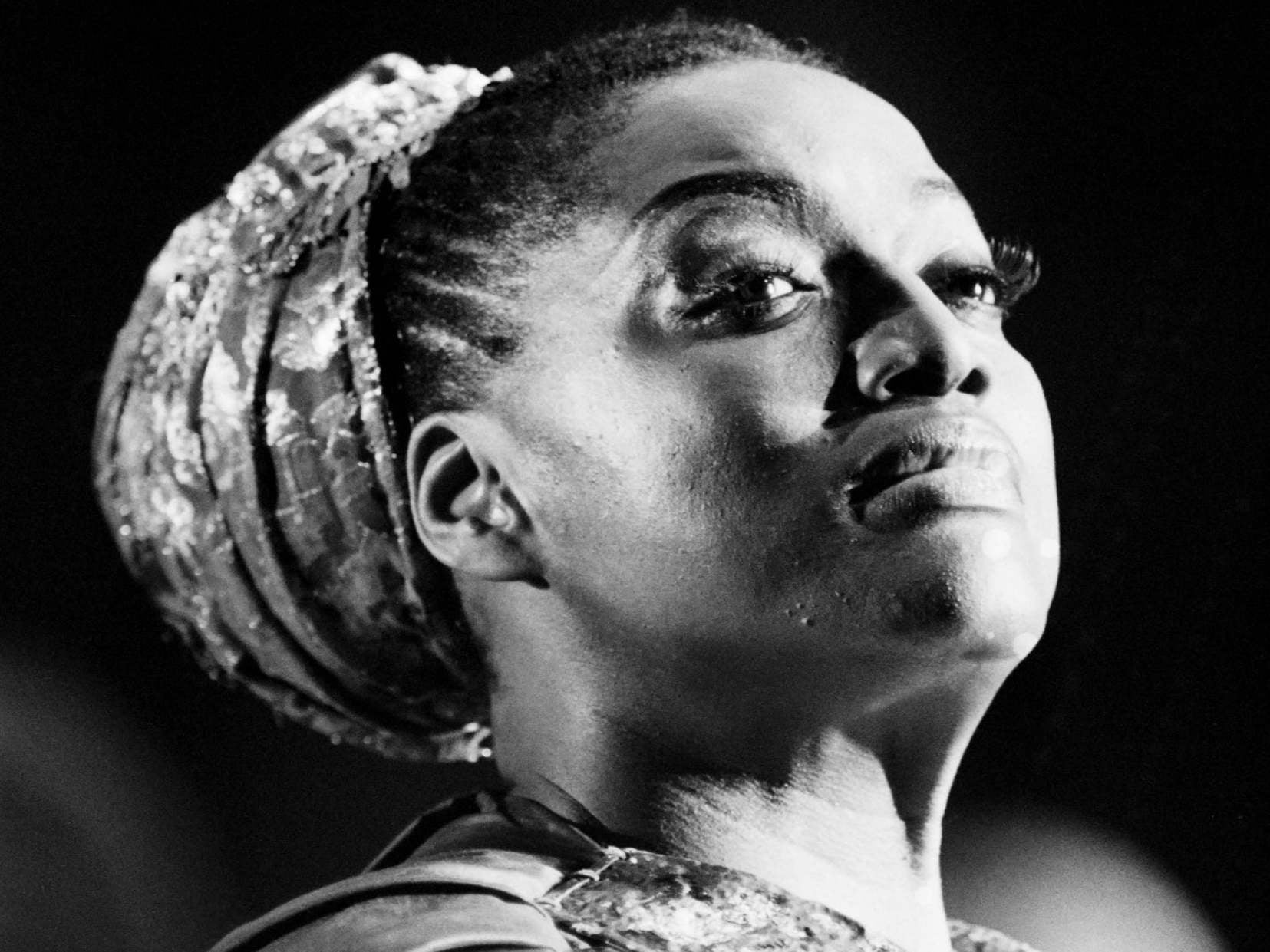Jessye Norman: Soprano whose commanding voice and presence shook up the world of opera
One of the few African-American singers to gain international recognition, she was also outspoken about racial barriers in her field

Jessye Norman was a towering figure in the world of opera, a soprano who sang with a gloriously sumptuous tone and whose repertoire spanned the operatic cannon, as well as taking in German lieder, French melodies and the great American songbook.
Norman, who has died of complications from a spinal cord injury at the age of 74, took to the stage at the prestigious Metropolitan Opera and La Scala, and performed title roles in Carmen, Aida and more. She won five Grammy awards, received the National Medal of Arts and sang at the second-term inaugurations of Ronald Reagan and Bill Clinton, as well as at the funeral of Jacqueline Kennedy Onassis and in a memorial concert for the victims of 9/11.
Hers was “one of the great natural voices, double-cream from top to bottom”, Edward Seckerson wrote for The Independent in 1993. And she combined the thunderbolt of her voice with an imperious stage presence where a raising of the head or movement of the arm would suffice to command the audience’s attention. Critics would describe her as “larger than life” and a “force of nature” – cliches that were all invariably true.
Norman was one of the few African-American singers to achieve international fame in the world of opera and classical music. She credited pioneering black singers such as Marian Anderson, Dorothy Maynor and Leontyne Price with paving the way for her, but was characteristically frank about racism, saying in a New York Times interview in 1983: “Look, it’s unrealistic to pretend that racial prejudice doesn’t exist. It does! It’s one thing to have a set of laws, and quite another to change the hearts and minds of men. That takes longer. I do not consider my blackness a problem. I think it looks rather nice.”
Born in Augusta, Georgia – the heart of the Jim Crow south – Norman was one of five children. Norman sang gospel songs in church from the age of four, and entered her first singing competition aged seven, winning third prize. For her ninth birthday, a present of a radio introduced her to the world of opera through weekly broadcasts from the Met.
She went on to study music at Howard University in Washington, followed by the Peabody conservatory in Baltimore and the University of Michigan, where she gained a master’s degree in vocal performance in 1968. That year she won the Munich International Music Competition and made her professional debut in Berlin, aged 23, as Elisabeth in Wagner’s Tannhauser.
The greater appetite for opera in Europe meant aspiring American singers would often begin their careers there. Norman first performed in the UK at the 1971 BBC Proms, and triumphed the following year at the Royal Opera House as Cassandra in Berlioz’s Les Troyens, prompting The Times headline: “Troy falls. Norman conquers.”
She finally made her Metropolitan Opera House debut in 1983, again as Cassandra in Les Troyens, opposite Placido Domingo. Norman would go on to make dozens of appearances at the Met before her final performance there in 2002.
Norman was a sublime interpreter of most of the operatic and art-song repertory from Purcell onwards – but especially of Wagner, Verdi, Mahler and Strauss. Some of the classic roles she performed included Aida, Verdi’s enslaved Ethiopian princess, and Bizet’s Romani Carmen. “To sing roles with which I have no empathy would be wrong,” she claimed. “The fact is, I adore the unusual.”
She was also a highly accomplished recitalist, winning her first Grammy award in 1984 for a recording of the works of Maurice Ravel, with further Grammys for recordings of Wagner’s Lohengrin and Die Walkure, and Bartok’s Bluebeard’s Castle. In 2006 she was awarded a lifetime achievement Grammy.
From the 1990s, she became increasingly involved in other forms of music-making. A Carnegie Hall recital in the 1998-99 season incorporated sacred music by Duke Ellington. And in 2000 she released the jazz crossover album I Was Born in Love With You, featuring songs by Michel Legrand.
By the end of her career, Norman was a household name in the US, in part due to her performances at public events. Asked to sing at Ronald Reagan’s second inauguration, she accepted though had misgivings due to her political beliefs. Her support for Barack Obama, who bestowed on her the National Medal of Arts in 2009, as well as for Hillary Clinton, led to the suggestion that she might stand for office herself, to which she replied: “I considered it and then I put it aside. I don’t think that I would be successful because I would not be able to hold back on what I need to say.”
Away from the concert hall and stage, Norman was an enthusiastic advocate of educational and civic engagement projects, establishing the Jessye Norman School of the Arts in Georgia to provide free tuition for disadvantaged children. Among her charitable roles, she latterly served on the boards of Citymeals on Wheels in New York and the Elton John Aids Foundation.
She is survived by two siblings, Elaine and James.
Jessye Mae Norman, opera singer, born 15 September 1945, died 30 September 2019
Subscribe to Independent Premium to bookmark this article
Want to bookmark your favourite articles and stories to read or reference later? Start your Independent Premium subscription today.

Join our commenting forum
Join thought-provoking conversations, follow other Independent readers and see their replies